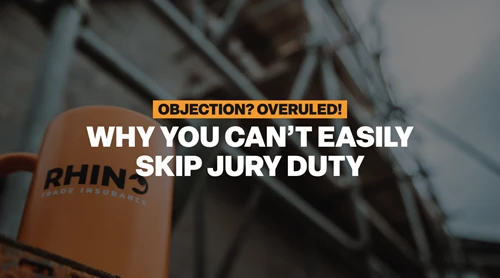For tradesmen and women, the United Kingdom's Skilled Worker Visa is more than just a document; it's the key to unlocking a world of opportunities. In this guide, we'll take you on a journey through the Skilled Worker Visa process in the UK and explore how the construction industry has played a fundamental role in managing the skills shortage.
The UK's Skills Shortage and the Construction Industry
The Challenge: Skills Shortage in the UK
The UK has faced a significant skills shortage in various industries, with the construction sector being one of the hardest hit. For years, there has been a growing demand for skilled tradespeople but a shortage of qualified individuals to fill these roles. This gap has hindered the development of the construction industry and its ability to meet the country's infrastructure and housing needs.
Construction Industry: The Backbone of the UK
The construction industry is crucial to the UK's economy, contributing billions of pounds annually and employing millions of people. This sector encompasses many skilled trades, including carpenters, electricians, plumbers, bricklayers, etc. These trades are the foundation of the construction world; without them, progress grinds to a halt.
Addressing the Skills Shortage: Construction's Role
The construction industry has taken proactive steps to address the skills shortage, and here's how:
- Apprenticeship Programs
Apprenticeships have become a powerful tool for training the next generation of skilled tradespeople. Construction companies and trade associations have established robust apprenticeship programs, offering on-the-job training, mentorship, and formal education. This ensures a steady influx of skilled workers into the industry.
- Technology and Innovation
The construction industry has embraced technology to enhance productivity and reduce the demand for manual labour. From 3D printing to drones and Building Information Modeling, these innovations transform how construction projects are planned and executed.
- Diversity and Inclusion
To expand the talent pool, the construction sector is actively promoting diversity and inclusion. Encouraging individuals from all backgrounds and demographics to join the trades is crucial in addressing the skills shortage.
- Collaboration with Educational Institutions
Construction companies are partnering with schools, colleges, and universities to create pathways for young people interested in the trades. These partnerships provide students with access to training and education opportunities, making it easier to enter the industry.
The Skilled Worker Visa - Opening Doors to the UK
What is the Skilled Worker Visa?
The Skilled Worker Visa, introduced in December 2020, is the UK's way of welcoming skilled professionals from around the globe. This visa, which replaced the Tier 2 (General) visa, is designed to attract and retain talented individuals who possess the skills the country needs.
Who Qualifies for the Skilled Worker Visa?
To qualify for the Skilled Worker Visa, you must meet specific criteria:
- Job Offer: You must have a job offer from a UK employer with a valid Certificate of Sponsorship (COS).
- Skill Level: Your job must be at a specific skill level.
- English Language Skills: You need to prove your proficiency in the English language.
- Salary Threshold: The job must meet the minimum salary threshold or the 'going rate' for your profession, whichever is higher.
What Makes the Skilled Worker Visa Attractive?
The Skilled Worker Visa offers several attractive benefits:
- Long-term Stay: You can stay in the UK for up to five years, possibly extending your stay.
- Family Members: You can bring your spouse, partner, and dependent children.
- Pathway to Settlement: After five years, you may be eligible to apply for indefinite leave to remain.
- Switching Jobs: You can switch jobs and employers in the UK without applying for a new visa under certain conditions.
- Access to Public Services: You can access public services such as healthcare and education.
The Application Process
Applying for the Skilled Worker Visa involves several steps, including:
- Certificate of Sponsorship (COS): Your prospective employer in the UK must provide you with a COS.
- Application Submission: You must submit your visa application online, including the necessary documents.
- Biometric Data: You must provide your biometric information at a local application centre.
- Decision and Visa Grant: The UK Visas and Immigration (UKVI) will review your application and make a decision. If approved, you'll receive your visa.
The Skilled Worker Visa and Construction
Introducing the Skilled Worker Visa in the UK has been a game-changer for the construction industry. Here's how it has impacted the sector:
The Skilled Worker Visa allows construction companies to recruit skilled tradespeople from around the world. This has significantly expanded the talent pool, making it easier to fill critical roles within the industry.
- Retaining Skilled Workers
With the option for visa extensions and a pathway to settlement, the Skilled Worker Visa encourages skilled tradespeople to establish long-term careers in the UK's construction sector.
The ability to hire skilled workers through the Skilled Worker Visa ensures that construction projects can proceed on schedule, meeting the demands of clients and investors.
- International Collaboration
The influx of skilled tradespeople from diverse backgrounds fosters international collaboration and the exchange of knowledge and best practices within the construction industry.
Examples of The Skilled Worker Visa in Action
To get an idea of how the Skilled Worker Visa can help the construction industry, let's take a look at a few examples of how the scheme can work:
Leanne The Sparky from Republic of Ireland
Leanne, a highly skilled electrician from the ROI, wanted to work on large construction projects in the bustling cities of the UK. With the Skilled Worker Visa, she secures a job with a UK-based construction firm. Today, she's an integral part of their team, contributing to major projects, building the cities of the future and advancing her own career.
Aftab, The Carpenter from Pakistan
Aftab, a talented carpenter from Pakistan, used the Skilled Worker Visa to pursue his passion for woodworking in London. He now works with a renowned furniture manufacturer, crafting beautiful pieces and living with his family in the UK.
Alexia, The Spanish Plumber
Alexis, a skilled plumber from Spain, moved to the UK on a Skilled Worker Visa. Her expertise in efficient plumbing solutions has made her a sought-after professional in the construction industry, meaning UK trade businesses can benefit from her experience.
How To Handle The Skilled Worker Visa Application
If you're considering applying for the Skilled Worker Visa to work in the UK's construction industry, here are some essential tips:
- Start Early
- Work with a Reputable Sponsor
- Prepare Thoroughly
- Seek Professional Assistance
- Be Patient
Why Choose Rhino for your Trade Insurance Protection
The Skilled Worker Visa in the UK is a golden opportunity for tradesmen and women. It not only opens doors to a fulfilling career but also helps the construction industry tackle its longstanding skills shortage.
With diverse talent from across the globe, the UK's trade and construction sector is poised for growth, innovation, and success. Whilst working in the trades, ensuring your business is adequately covered is essential. Rhino Trade Insurance offers exceptional protection options for tradesmen and women of all disciplines. Whether you are a carpenter, bricklayer, cleaner, tailor or locksmith looking for liability cover, tool protection or whatever else, we have your back! Call Rhino HQ on 0116 243 7904 or get a quote right now by visiting our quick and easy quote engine.




